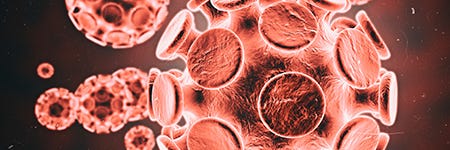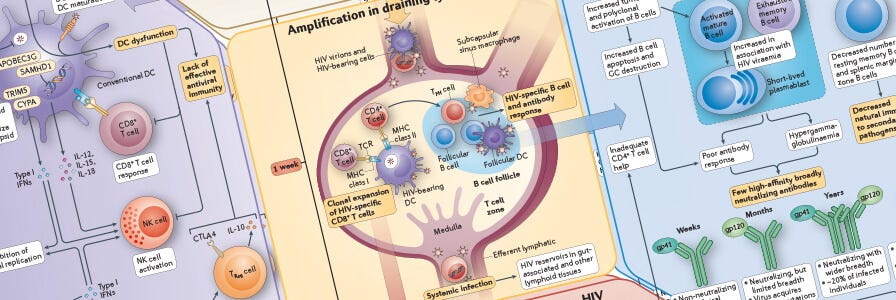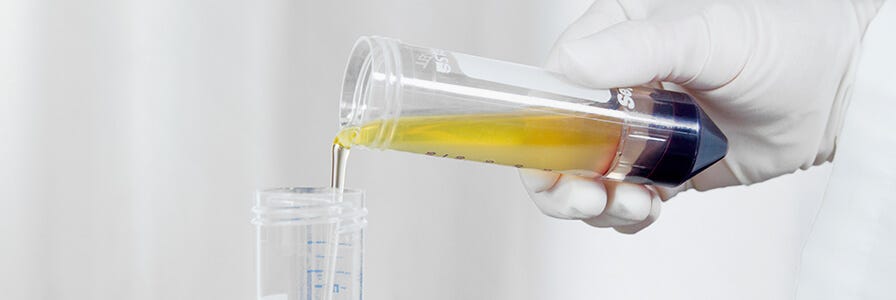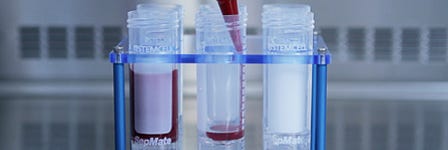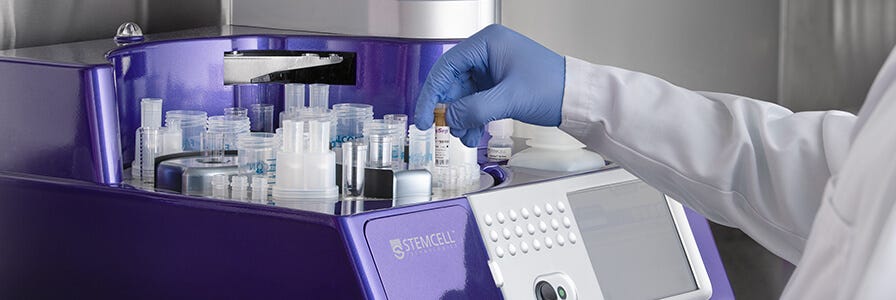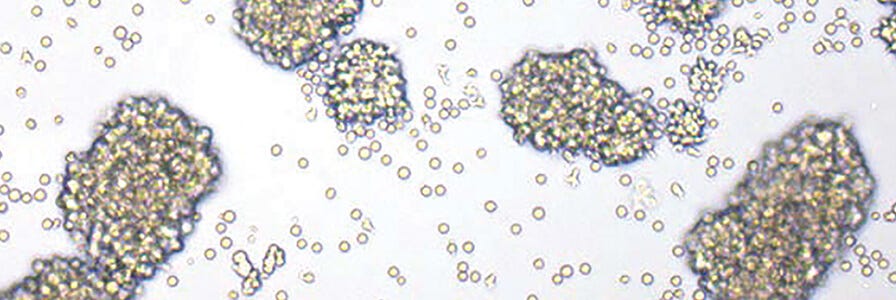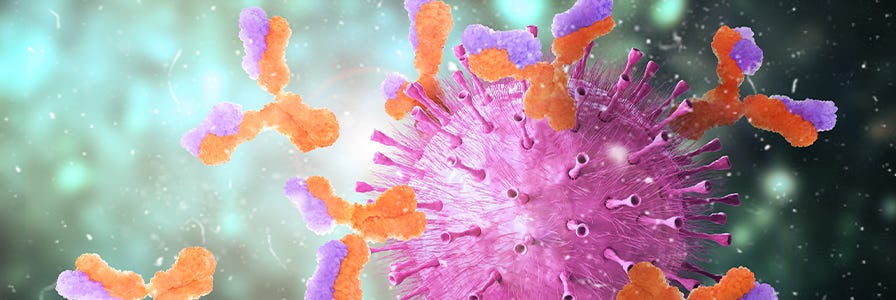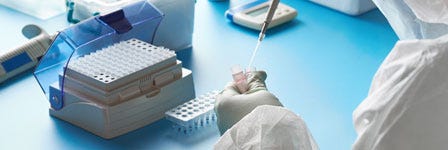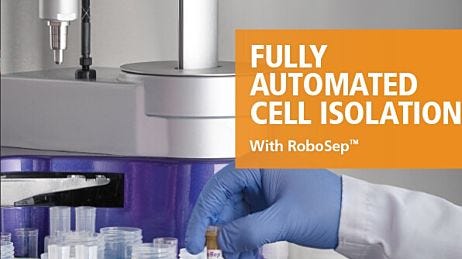HIV Immunology Research Tools and Technologies
Infectious Disease Resources
In 1996, significant advances in human immunodeficiency virus (HIV) therapy were named “Breakthrough of the Year" by Science. By combining protease inhibitors with other drugs such as azathioprine, researchers were able to substantially reduce viral loads in infected individuals. Despite this discovery being a major step forward, HIV researchers still have much to do before the disease is truly eradicated.
For more information, read our mini-review and wallchart on the immune response to HIV, and find tools and technologies to support your HIV immunology research.
Overview of the Immune Response to HIV
HIV primarily infects CD4+ T cells. Since CD4+ T cells are critical in orchestrating cells of adaptive immunity, such as B cells and CD8+ T cells, HIV infection impairs the immune response against the virus itself. This phenomenon explains why the immune system can’t fight HIV infection effectively.
The Immune Response to HIV Wallchart
Get a free Nature Reviews Immunology wallchart summarizing how HIV establishes infection at mucosal surfaces, the ensuing immune response to the virus involving dendritic cells, B cells, and T cells, and how HIV subverts this response to establish a chronic infection.
Tools for HIV Research
Explore various tools and technologies for studying the immune response to HIV infection.
Immune Cell Sourcing and Isolation
Human Primary Cells
Choose ethically sourced fresh or frozen human primary cells, including whole peripheral blood, Leukopaks, frozen peripheral blood mononuclear cells (PBMCs), and frozen T cells for your research.* For more information about primary cells, please see our frequently asked questions.
*Certain products are only available in select territories.
SepMate™ PBMC Isolation Tubes
Reduce centrifugation time and isolate PBMCs in just 15 minutes using density gradient centrifugation.
Lymphoprep™ Density Gradient Medium
Isolate mononuclear cells from blood using this cost-effective alternative to Ficoll-Paque™ that can be used with SepMate™.
Try SepMate™ tubes in your own lab.
Request a Sample >
EasySep™ Immunomagnetic Cell Isolation
Quickly isolate highly purified human or non-human primate cells with a simple pour. Automate with RoboSep™ to minimize sample handling.
RosetteSep™ Immunodensity Cell Isolation
Isolate human immune cells directly from whole blood during density gradient centrifugation.
Featured EasySep™ Cell Isolation Kits
Try EasySep™ in your own lab.
Request a Sample >
RoboSep™: Automated Cell Separation for HIV Research
HIV research often requires cell isolation procedures that minimize sample handling to avoid cross contamination of samples and exposure to the virus. RoboSep™ is a powerful instrument for rapidly isolating purified immune cells affected by HIV with minimum human manipulation.
RoboSep™ fully automates cell isolation procedures by using a robotic pipettor to perform all cell labeling and magnetic separation steps in a column-free system. The instrument can fit into a standard laminar flow hood for sterile operation and uses disposable plastic-ware tips—instead of multi-use columns and tubing—to ensure safe handling of blood products and avoid sample cross contamination.
We use RoboSep™ to isolate different cell subsets (monocytes, CD4+ T cells, CD8+ T cells, and NK cells) from HIV-infected patients and use these cells to perform genetic and/or functional analyses. For instance, we isolate CD4+ T cells from different patients and check the susceptibility of these cells to HIV infection. By doing so, we can detect resistance of host cells to infection with the hopes of elucidating the mechanisms that contribute to limiting the HIV reservoir. We also infect CD4+ T cells in vitro and coculture them with autologous CD8+ T cells or NK cells to assess the antiviral capacity of these later cell types.
Dr. Asier Sáez-Cirión on an interview about his HIV research
Immune Cell Culture and Genome Editing
ImmunoCult™ Immune Cell Culture
Activate, expand, and differentiate immune cell subsets, including T cells, B cells, dendritic cells, and macrophages, without the use of serum.
ArciTect™ CRISPR-Cas9 Genome Editing System
Overcome the challenges of efficient delivery and expression of CRISPR machinery using ArciTect™, an RNP-based CRISPR-Cas9 system.
Analysis and Cryopreservation
Need help finding and choosing the right products for your HIV research? We can help. Contact us by phone or email, or use the LiveChat function on this page to discuss your specific needs and applications.
More Resources for Infectious Disease Research
Tools for Studying Immune Responses to Viral Infections
Learn about the immune response to viruses. Find out how obtaining the right immune cell populations and being able to analyze them effectively is critical for this research area.
Therapeutics Development for Viral Diseases
Explore technologies, applications, and research tools for developing and assessing therapeutics to combat viral diseases such as COVID-19.
Vaccine Development for Viral Diseases
Learn about tools and assays for developing vaccines, including products for sourcing and isolating immune cells, assessing vaccine candidates, and developing production lines for recombinant vaccines.
Diagnostic Assay Development for Viral Diseases
Learn about tools and technologies that support efficient and reliable generation of diagnostic tests for viral diseases, including products for sample preparation.
